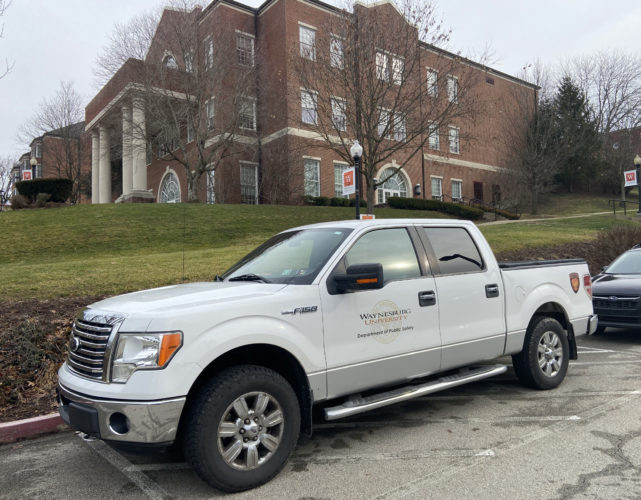 Andrew Hreha, The Yellow Jacket
Andrew Hreha, The Yellow Jacket “The times, they are a changing.”
That 1964 Bob Dylan classic applies to a lot of things in the world, and drug use is one of them.
The relationship between the United States and marijuana, for example, is one thing that’s changed.
With the legalization of marijuana taking place in multiple states over the past decade, the country has taken on a more lenient view of the drug.
Waynesburg University’s new drug policy, which will go into effect by the time the class of 2024 begins their first semester in August, looks like it reflects this more lenient outlook.
For instance, students will no longer be automatically suspended for possessing any drug paraphernalia. Chris Hardie, assistant dean of students, does not see the change in policy as the university softening up.
“A student might look at it and think that we’ve lightened up, especially the drug section,” Hardie said. “We actually haven’t done that at all. What we do is we define some educational rehabilitation measures in there.”
There are several reasons behind the new changes. For one, Hardie felt that the rules had gotten stale.
“We felt like we hadn’t made any change in at least 20 years,” he said. “I’ve only been [in my job] seven, but I do know that it’s been a long time since we’ve looked through the alcohol and drug policy. So we wanted to just bring it up to times. Some of the terminology was older. There was some gray area in there with the way that the code was worded. So we wanted to bring it all up to speed to where there was no gray area.”
For instance, a goal considering alcohol violations was to clear up the difference between a level one and a level two violation. Also, the drug and alcohol policies, Hardie said, will be isolated from each other.
“Alcohol has its own section now, and drugs have their own section,” Hardie said. “So instead of it being an AOD, [alcohol and other drugs] … alcohol has its own [tier] one, two and three and drugs has its own [tier] one, two and three. So there’s a severity in each of those that we kind of now distinguish in the code.
Hardie also said the punishments for alcohol violations used to be determined by the “size of the party.”
“We’ve put some numbers to it, so it’s a certain amount of ounces per student in the room, a certain amount of students that were there, that kind of thing.”
Hardie said the changes will now consider a students prior history when determining punishment for a violation.
Director of the Department of Public Safety Mike Humiston is no stranger to dealing with students who have gotten in trouble for drug use. This is not only because of his job in public safety, but also because of some cases he’s dealt with as head baseball coach.
For Humstion, giving students a chance at redemption, rather than automatically suspending them for a semester, is a more fair alternative.
“I think that with the amount of students, not only here at Waynesburg University, but all across the nation, with the legalization of recreational marijuana, or the upcoming legalization of recreational marijuana, people are a little bit more forgiving,” Humiston said. “I like to think as a Christian institution, we try to help our students, versus just kind of [getting] rid of them. So I think it’s a better policy honestly. That’s not saying that I condone the use of illicit drugs or anything like that. I just think there’s a better way, and I think that we’re doing it with this new policy.”
For Hardie, the adjustments help Waynesburg keep up with the times.
“I think for me, it becomes a way for us to catch up. For 20 years, we had the same policy, and I think maybe culture changes with alcohol and drugs, specifically marijuana in today’s society. We just look at things differently than we had 20 or 30 years ago.”
Humsiton said “the education of our students,” is what matters most of all.
“We are in a position as an institution of higher education to prepare our students for life after college,” Hardie said. “So we want our students to be able to get a job, be respected in our communities, have our workplace similar to what we want to do here, and I think we’ll do a really good job of that.”
